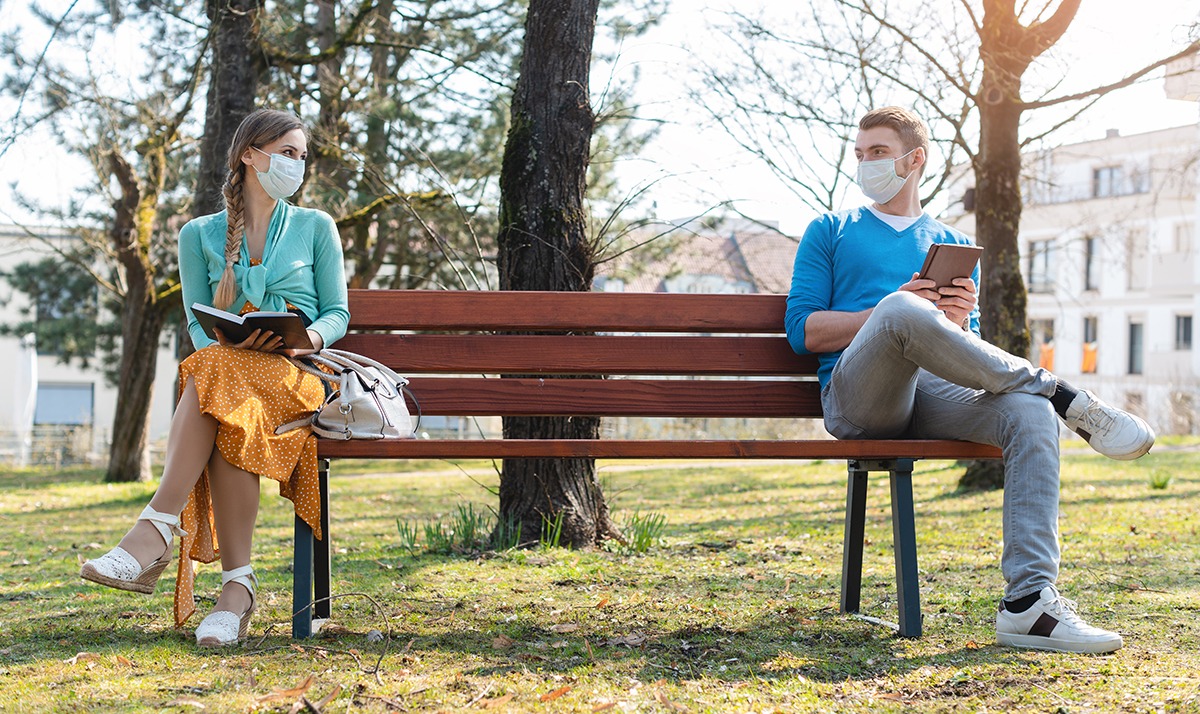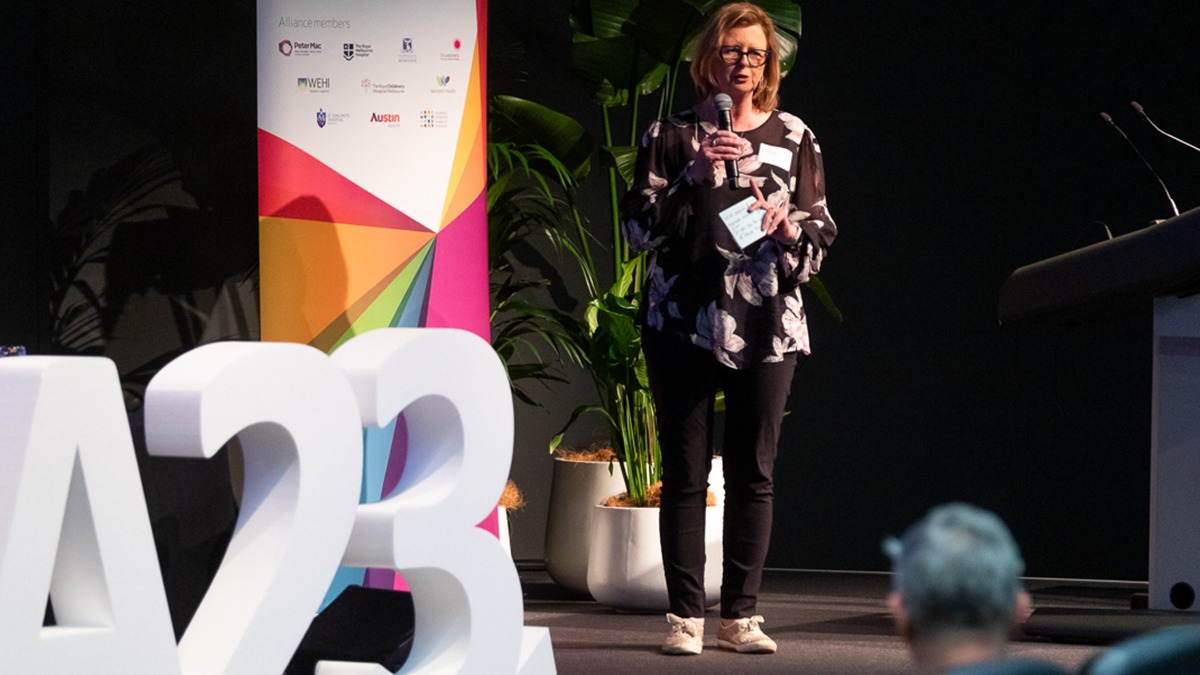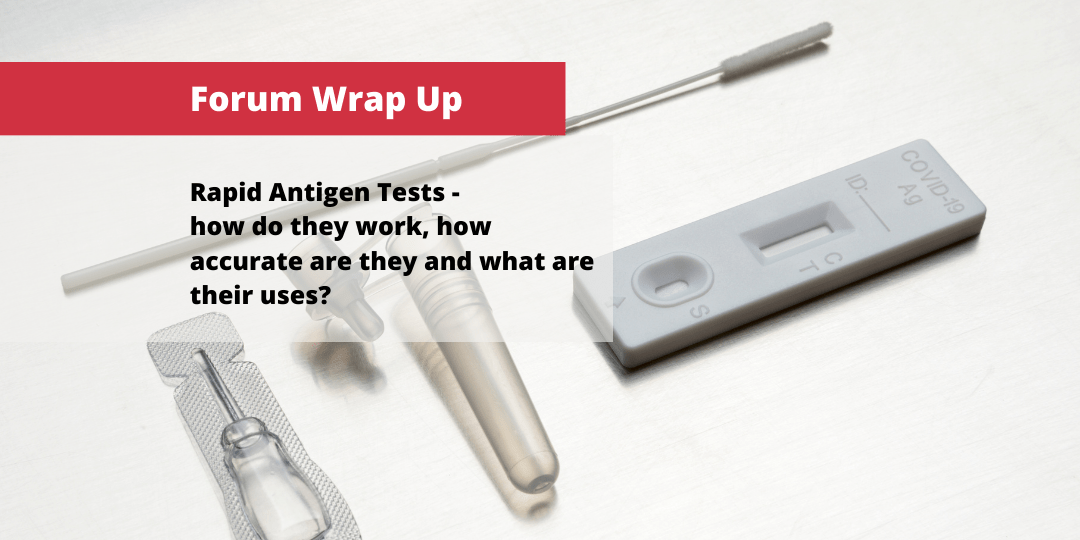Australian State and Federal Governments have stepped up recommendations for public use of face masks amid warnings from the medical community that COVID-19 is carried on minute airborne particles. This has prompted a surge in consumer demand for masks. But is your face mask actually protecting you?
Andrew Harrison* is not a doctor, nor a scientist but flaws in the system of regulation have meant that lately, he has found himself making decisions about which face masks are safe to sell to clinics – a decision he is the first to admit he is not qualified to make.
As a sales manager for a company that distributes medical supplies to health clinics, Mr Harrison has enough understanding of health and safety to be troubled by what he’s seeing.
In Australia, the regulation of face masks used by hospitals and medical professionals is regulated by the Therapeutic Goods Administration (TGA), and according to those involved in distributing them, the current system of regulation has opened the door to unscrupulous overseas suppliers able to exploit it, flooding the market with face masks that are not fit for purpose.
“Whenever there is a crisis, there will be people who seek to exploit it,” Mr Harrison explains.
“Essentially, the problem is that the system of regulation for PPE is honesty based. To gain TGA listing, you are required to fill out a self-declaration stating that your product meets the standards set by the TGA. The extent of testing and the quality standards required vary wildly between bodies and organisations, and between different countries.
“Since the pandemic began, I have seen a number of local suppliers, often with no background in medical sales, selling masks and taking advantage of the TGA listing as a ‘stamp of approval’ to indicate the quality of masks that wouldn’t meet the standards required by health professionals.”
It’s a loophole, he says, that is potentially putting our frontline health workers, and their patients at risk.
It’s also a problem that has been exacerbated by other measures taken by the Government to ensure the supply of face masks during COVID-19.
In March this year, prompted by concerns that during COVID-19 demand would outweigh supply, the Government eased restriction around face mask certification for Federal purchasing contracts.
Prior to March 2020, companies supplying masks for the Government stockpile were required to declare their products had been independently tested, and approved by the TGA. When the pandemic hit our shores, the testing requirement was dropped.
The Federal Government purchased 100 million masks under the relaxed regulation.
According to an investigation by the Sydney Morning Herald, some manufacturers have taken advantage of the loophole, registering their products, and then using the government issued regulation certificate to sell them to private hospitals and health clinics, that unknowingly, are now using face masks that offer little protection.
“If people wear protective equipment and they think they work, they put themselves in closer proximity to infected patients,” Jane Whitelaw, a member of the Australian Standards Committee, told the newspaper.
“They are at greater risk, because the particles are going straight through the mask.”
The TGA is currently undertaking a post-market review of face masks to validate whether or not the devices entered on the register through the auto-inclusion process meet all the regulatory requirements and perform as intended.
That is, the products will be reviewed after they have been allowed into the market.
How safe is your face mask?
Yet, according to the Health Issues Centre, it’s not just emergency workers who are being put in danger due to the lack of adequate regulation of protective face masks.
Since COVID-19 entered our vocabulary, many Australians have put their faith and the health of their families in face masks they believe will protect them from the deadly coronavirus.
This week, in the face of the massive COVID-19 outbreak in Melbourne, Premier Daniel Andrews began instructing Victorians to wear face masks whenever they leave the house.
“The Chief Health Officer has now given us the clear advice that wearing face masks makes a tangible difference when it comes to reducing the transmission of coronavirus within the community,” he said.
So keen is the Victorian Government to get Victorians using face masks, they have even released a handy DIY guide for the crafting-inclined.
According to Health Issues Centre, contradictory and misleading advice from the Government means that people are unsure which face masks offer the better protection, or that any kind of regulation even exists.
“Face masks that are presented or make claims to be for therapeutic use, such as being labelled for surgical use, or to reduce or prevent the transmission of disease or microorganisms such as bacteria or viruses between people, meet the definition of a medical device and are regulated by the TGA,” a TGA spokesperson told Health Issues Centre.
“For those face masks that do not meet the definition of a medical device, these are regulated by the Australian Competition and Consumer Commission as consumer goods.”
What this means is that if a face mask isn’t marketed as for medical purpose, it isn’t required to meet any safety standards above those that apply to all consumer goods.
Since the announcement of the TGA review into face mask listings, over 100 manufacturers have withdrawn their applications for certification, yet their devices are still readily available.
Health Issues Centre CEO Danny Vadasz says despite this clear distinction, Government messaging about the different standards of face mask protection has been low-key. While the DHHS website does state that two grades of face mask exist – surgical and non-surgical – it stops short of describing the difference in protection.
Under the regulation, surgical masks are TGA approved, and comprise three layers (3ply) with a middle filtration layer of non-woven cloth to protect others from airborne contaminants.
Respirator masks comprise four layers and minimise the transmission of airborne organisms.
Both surgical and respirator masks can be purchased from St John Ambulance.
Non-surgical masks can be made from fabrics that offer little protection. They may be sold in chemists and come in clinical-looking baby blue, or made by Aunty Mary in your favourite footy colours.
“The Victorian Government continues to push the use of non-surgical and hand-made face masks,” says Mr Vadasz. “What we want to know is, if surgical masks offer the best protection, why isn’t the public being instructed to use them?
“Why is the Government promoting the use of devices that offer less, and in some cases, very little, protection?”
In fact, the Victorian Government is actively encouraging the public not to use surgical face masks.
“Medical-grade masks and respirators are not recommended for use in the community and not advised to be used outside of healthcare or specific industries under health advice,” a spokesperson for the Victorian Department of Health and Human Services told Health Issues Centre.
When pushed for the reasons behind this recommendation, the spokesperson said that it was based on “health advice” and wouldn’t be drawn on specifics.
Why the quality of your face mask matters
Mr Vadasz says this lack of transparency has punctuated the Government’s advice and regulation around face masks and other protective products such as hand sanitisers since the start of the pandemic.
Up till now, chief medical officers around the country, citing advice from the World Health Organisation (WHO), have downplayed the significance of airborne transmission of COVID-19 and therefore the role of face masks in mitigating it.
The WHOs stance to date has been that the coronavirus is predominantly transmitted through large respiratory droplets contained in sneezes or coughs.
According to the WHO, the spread of coronavirus can be largely curtailed by coughing or sneezing into your elbow, staying home if ill, and practicing rigorous hand hygiene.
This month though, 239 scientists from 32 countries have written an open letter to the WHO, urging them to amend their advice to include microdroplets.
Microdroplets are small particles that are emitted when we breathe, talk or sing, and can remain in the air for much longer, where they can be inhaled by others.
The letter was led by Lidia Morawska, an internationally recognised air quality and health expert, who says: “We are concerned that people may think they are fully protected by following the current recommendations, but in fact, additional airborne precautions are needed to prevent the further spread of the virus.”
It’s a warning that an increasing number of countries around the world are heeding. In fact, while Australia has been dragging its feet on the issue of face masks, many countries around the world are mandating it.
Venezuela and Vietnam imposed mandatory face masks in public back in March, with the first European country, the Czech Republic, to legislate the wearing the wearing of face masks the following week.
Currently, more than 50 countries globally require by law its citizens to wear face masks in public, including Israel, Turkey, Morocco and the United Arab Emirates.
While the lack of clarity around the use and regulation of face masks in Australia could be viewed as simply a failure of medical regulators to agree on an ever-evolving issue, the Health Issues Centre believes it to be a considered and informed decision to downplay the importance of the device.
That has already been revealed to have been the case in the United States, another developed country, which has notoriously confused and inadequate regulation, as well as conflicting Government health advice, about the use of face masks.
Last month, the US government’s foremost infectious-diseases expert Dr Anthony Fauci said in an interview for financial news website TheStreet that the reason the public was advised not to wear masks had little to do with personal safety.
At the start of the pandemic, Dr Fauci now-famously tweeted that masks were not effective in preventing COVID-19, writing, “Seriously people- STOP BUYING MASKS!”
In his recent interview with TheStreet, Dr Fauci said that at the time the Government was concerned there would not be enough masks for medical professionals during the crisis.
“The public-health community were concerned that it was at a time when personal protective equipment, including surgical masks, were in very short supply,” he said.
And as happened in USA, now that Australia’s stockpile of face masks have remained strong, authorities seem to be becoming more comfortable recommending their use to the general public, although stopping short at recommending those used by the medical profession.
“There is increasing evidence that coronavirus is transmitted through microdroplets and the use of facemasks that offer the best protection available is more important than ever,” says Mr Vadesz.
“It’s time the Victorian Government stopped sharing face mask sewing patterns and started educating the public about how to best protect themselves, their families and their communities.”
* Name has been changed






